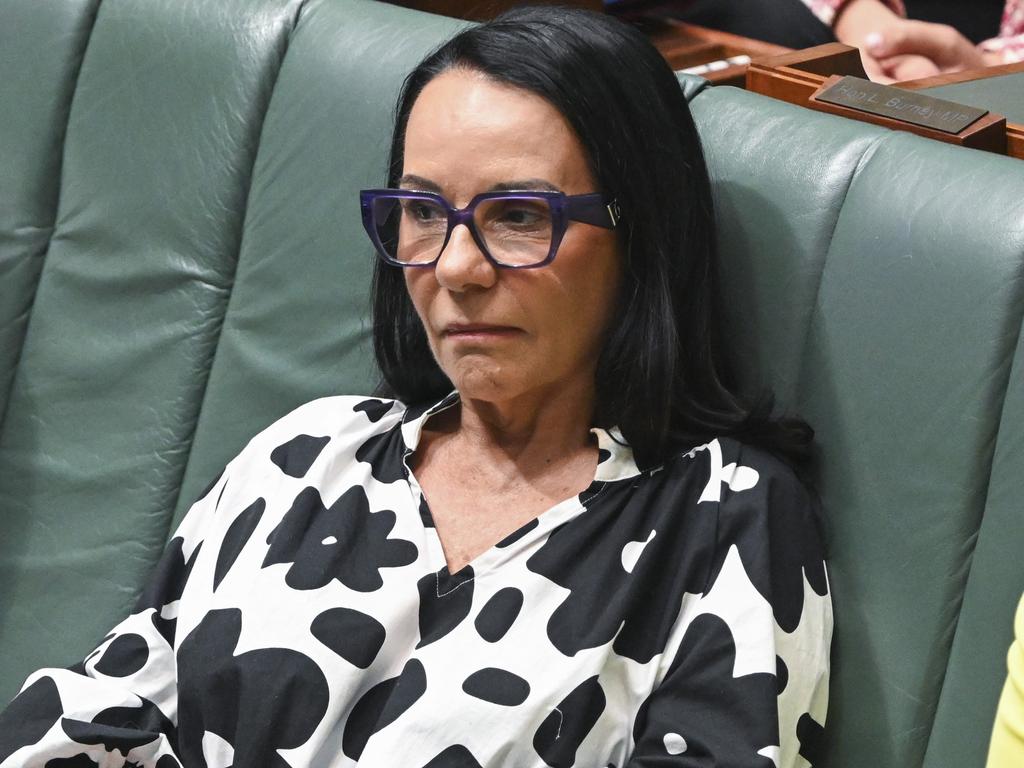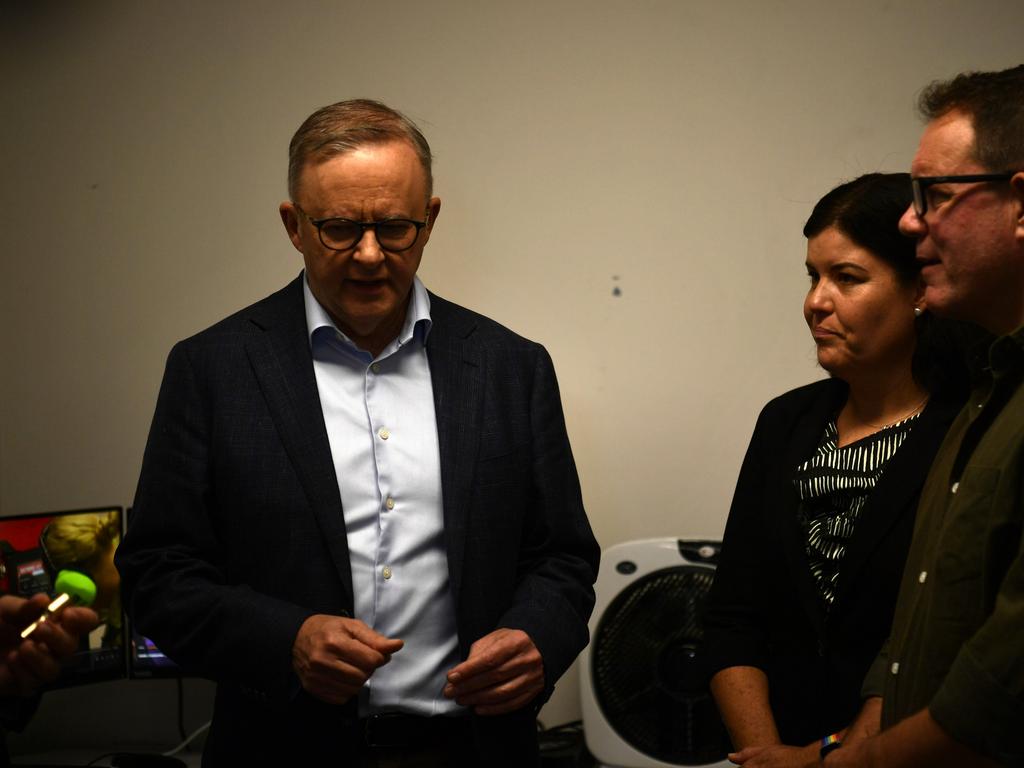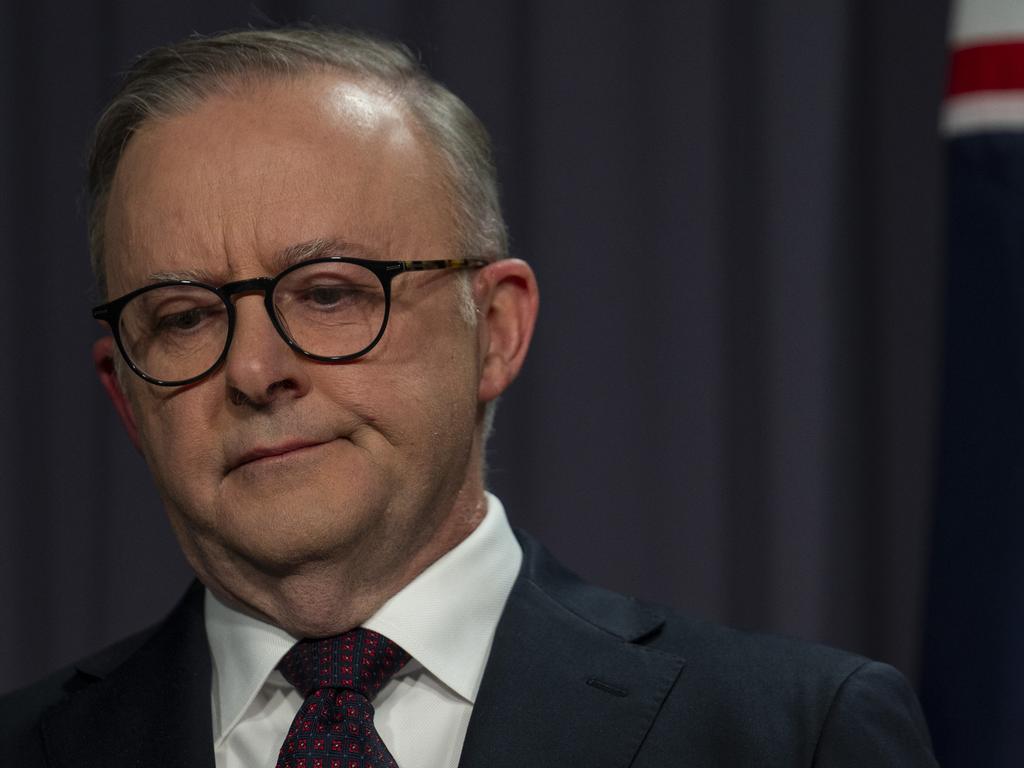ANU study of 4200 Australians finds voters rejected voice model, not constitutional recognition
The ‘largest and most comprehensive survey’ on the voice to parliament found the model put by the PM was a key reason the referendum failed.

The “largest and most comprehensive survey” on the Indigenous voice to parliament has found the model put by the Albanese government was a key reason the referendum failed amid widespread support for a broader definition of constitutional recognition.
After tracking the views of 4200 voters since January, the Australian National University will release on Tuesday the study showing 41.5 per cent of respondents would definitely have voted Yes to recognise Indigenous people in the Constitution compared with 9.2 per cent who were certain they’d vote No.
Nearly a third (29.3 per cent) were unsure and wanted more details when asked: “If the referendum question was not to establish the voice to parliament but instead to recognise Indigenous people in the Constitution only, would you have voted YES or NO?”
In a finding that doesn’t align to the result of the referendum, which was voted down 60 per cent to 40 per cent, 87 per cent of voters surveyed believed Indigenous Australians should have a voice or say over matters that affected them and 76 per cent of No voters thought they deserved a voice on key policies and political decisions.
Study co-author Nicholas Biddle said the survey showed most voters were supportive of some form of constitutional recognition for Indigenous Australians.
“This raises serious questions about why the proposed referendum failed and saw more than 60 per cent of voters, and all states and territories except the ACT, categorically reject it,” he said.
“Our findings suggest it is not so much the premise of recognition but the model that was being presented to voters at the referendum, among other key factors.
“Our findings show that there is widespread support for a broad definition of constitutional recognition. Almost five times as many Australians, 61.7 per cent, said they would definitely or probably would have voted Yes if there was a referendum on recognition compared to those who said that they would probably or definitely would have voted No, 12.5 per cent.”
Most voters (79.4 per cent) thought the federal government should help improve reconciliation and 80.5 per cent wanted the country to undertake formal truth-telling processes – the third request of the Uluru statement, behind voice and treaty.
Deputy Liberal leader Sussan Ley asked Anthony Albanese on Monday if his government remained committed to implementing treaty and truth-telling one month after the referendum.
The Prime Minister downplayed the federal government’s role in treaty-making.
“Prior to October the 14th, I stood at this dispatch box and they were trying to say that what people were voting on was treaty,” he said.
“I indicated at this dispatch box that that wasn’t what people were voting on. That indeed, treaty negotiations are under way at state level, not at federal level. There is no treaty negotiations under way by the federal government.”








To join the conversation, please log in. Don't have an account? Register
Join the conversation, you are commenting as Logout